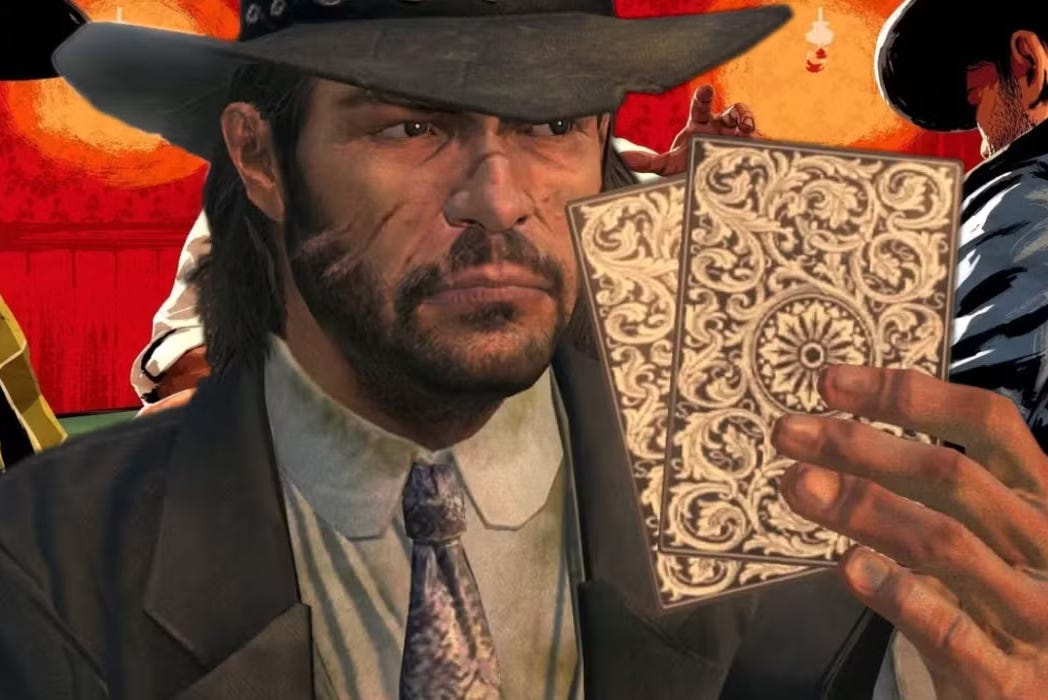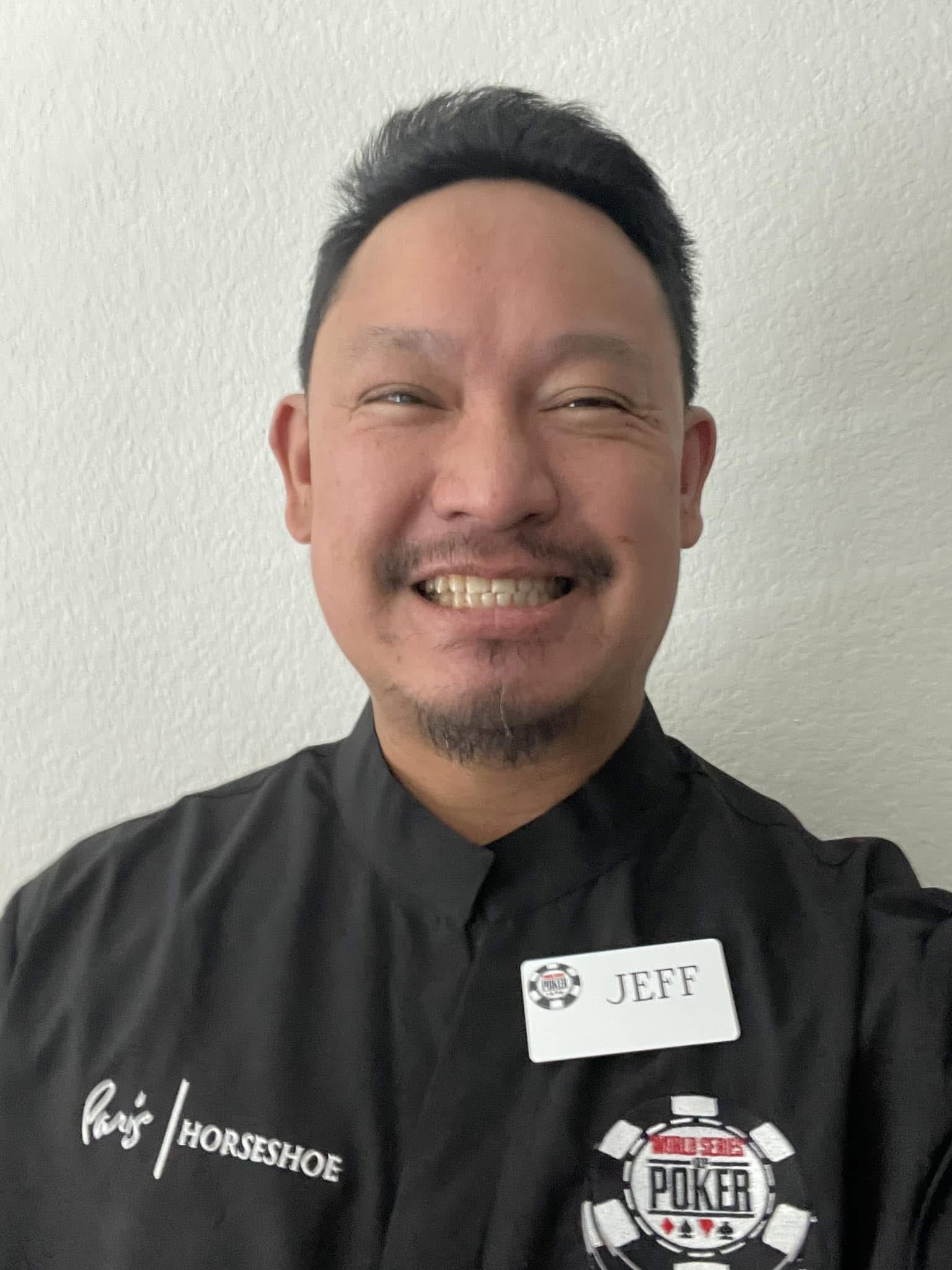When I walked into the Bally’s poker room for my live audition in April 2022, I didn’t know a soul. Before the audition started, I huddled with the other candidates, making small talk. The tension in our corner of the room was palpitable; all of us needed this job. Our group mirrored the melting pot of the idealized America: folks in their 20s through their 50s, almost half men and women, and smattering of several different races and ethnities. Some people were Las Vegas locals, but many of us had flying in from many different states, including Vermont, South Carolina, Illinois, along with me from California.
At the outset of the audition, we were still on pins and needles. As the morning went on, we started to relax. Our evaulator instructed us to play the hands normally (though he would occasionally direct us to specific plays to test the dealer in the box). Soon, we were chiding each other on our poker prowess, as if we were chums in a long-running home game (“Who plays pocket aces?!?”). We encouraged each other during their time in the box and congratulated one another at the conclusion of every audition. Unlike other group interviews I’ve been a part of, we were not competing for a single position. In the end, all 20 of us were hired for the summer.
As a poker player, the casino can be a very lonely place. You walk into an unfamiliar room, sit down at a table with strangers, and all of the participants (maybe even the dealer) look you up and down. Seasoned veterans have trained themselves to make snap judgements based on a quick look. Is the new guy good at poker or bad? Are they a threat, or an ATM? Poker players don’t go to casinos to make friends; they are there to win money. This is America: no one forced you to walk into a card room, play poker badly, and donate money to the table. You will get no mercy or sympathy from other players if you do poorly. Want to cry and complain? Talk to a therapist or a priest. It’s every person for themselves at the poker table.
Sometimes this mentality spills into the dealer room. Many dealers are current or former players, so their instincts are attuned to an adversarial mode. During slow times, a dealer might get forced out due to the lack of available tables. It’s always a gamble for a dealer, who might work 0 hours (if a room is dead) or 12+ (if the room is beyond packed). Often the choice is random: one dealer might be needed to stay on for overtime, while everyone else in the same shift is sent home. Dealers are just like the players: we could go home flush with cash, or leave the casino broke.
But there are a lot of perks beyond the pay. You could deal a high roller table to poker pros or celebrities you’ve seen on TV. You could get a final table, where there could be literal millions of dollars on the line with each hand. You could even get to the be on TV yourself, on a table streamed on PokerGo and YouTube. There are only a few of these coveted spots each day.
On online poker dealer forums and groups, new and veteran dealers ask how they can get one of these precious assignments. They want to work in the Bahamas, or Europe or Asia. They want to be in the spotlight, to show video clips to their friends and family at home.
In 2022, I was fortunate to get 2 final tables and 2 days on the Main Event live stream, which is very unusual for a first time WSOP dealer. In the 2 summers since, I’ve been dealt many High Roller events, final tables and streaming tables. I’ve been invited to deal overseas; and with my connections, could deal at any tour stop in the country if I wanted. So, here’s my secret to getting to the good stuff:
Make friends.
That’s probably not the advice you were expecting. Maybe you were expecting “Learn all the mixed games,” or “have perfect dealer mechanics.” Or maybe making friends is low on your priority list.
The casino world is filled with people with bad social skills, people who are obvious just out there for themselves. And many of the “friendships” are purely transactional, just facades to make the time go faster. Even dealers might cozy up to a player or supervisor, hoping to earn a favor down the road. But there are fewer geniunely kind people in card rooms.
That’s the real caveat to this advice: be genuine. Poker people are attuned to BS; we can smell it a mile away. Whether it be sometime trying to smooth talk their way during a bluff or asking for a favor (usually a loan), gamblers and casino staff have seen and heard it all. Supervisors also know brown-nosing when they see it.
A first year WSOP dealer I worked with in 2024 asked me for advice on how to get noticed by the supervisors. He talked about dealing perfect games (mechanics, table control, fast pace, etc.) But in a room with several hundred dealers and just a handful of supervisors, it’s difficult to stand out in a positive way for just skill level. The supervisors are running around putting out fires (from new dealers and/or difficult players); they aren’t paying attention to the good dealers, mostly from lack of time and attention.
What can make a dealer shine is putting in extra effort, like making sure a table is clean and tidy after it breaks. Or helping another dealer who’s having some difficulty with a task. Or offering to do some grunt work, like picking up chip racks off the floor (they are everywhere!). Supervisors will notice that type of behavior first, then later on will check out that dealer’s skills in the box. Which can lead to promotions and the better assignments.
Way back at my audition in 2022, I exchanged contact info with one of the other candidates. He was like me, never having worked in a casino, only working home games. Now, when he’s not travelling the circuit, he’s in Las Vegas dealing and playing. We both have had our successes at the tables and continue to spur each other on. (Shout out to my boy, Josh!)
I’ve been very lucky to have many several connections like this, beyond mere networking or career advancement. The poker world is very small, so reputations are spread very quickly. First impressions also matter, so you better be on your best behavior!





